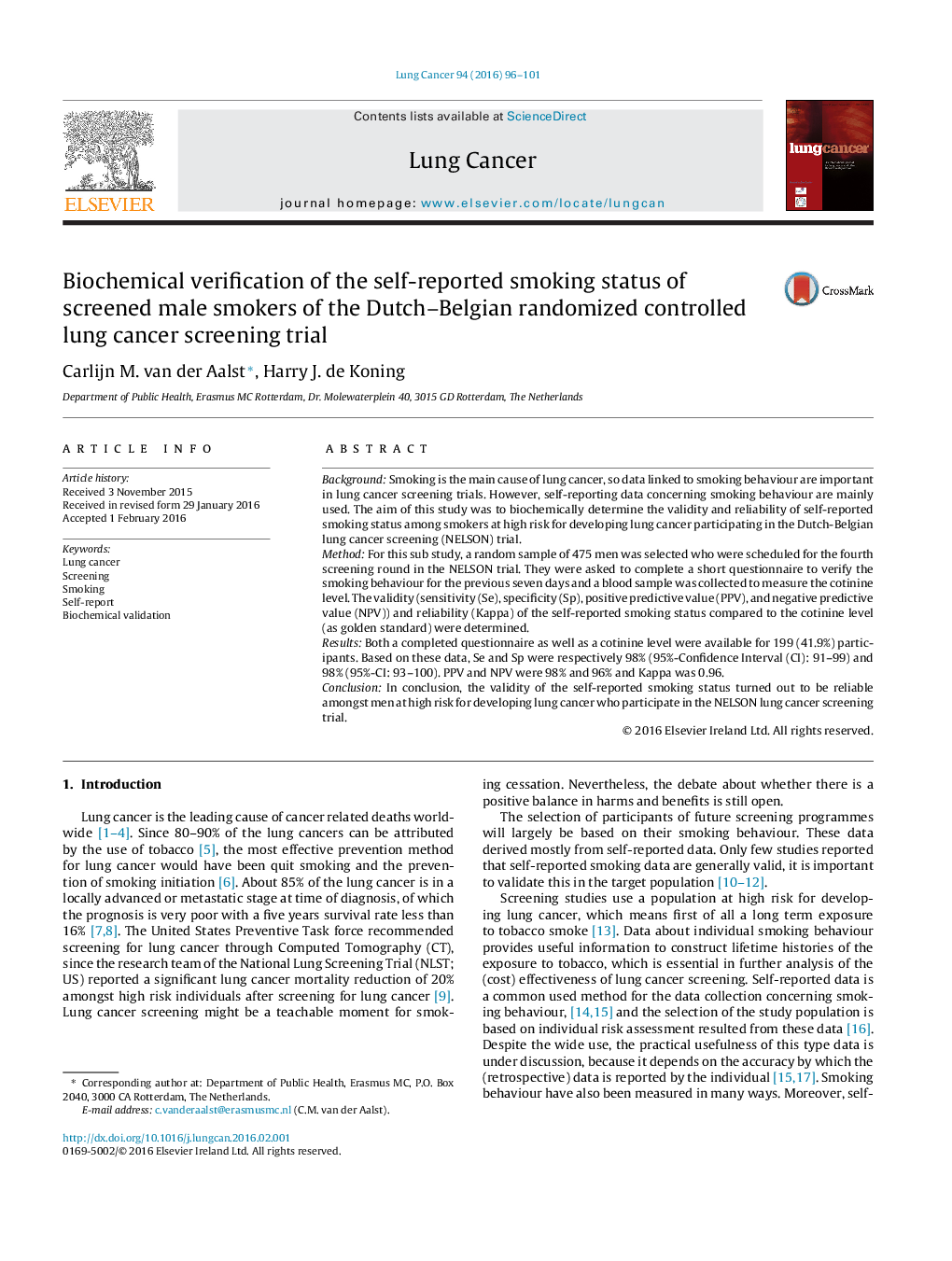| Article ID | Journal | Published Year | Pages | File Type |
|---|---|---|---|---|
| 2140472 | Lung Cancer | 2016 | 6 Pages |
•Self-reported data is one of the most easiest and affordable method for data collection.•Eligibility for lung cancer screening is largely based on self-reported smoking behaviour.•The self-reported smoking status of lung cancer screening participants turned out to be reliable.
BackgroundSmoking is the main cause of lung cancer, so data linked to smoking behaviour are important in lung cancer screening trials. However, self-reporting data concerning smoking behaviour are mainly used. The aim of this study was to biochemically determine the validity and reliability of self-reported smoking status among smokers at high risk for developing lung cancer participating in the Dutch-Belgian lung cancer screening (NELSON) trial.MethodFor this sub study, a random sample of 475 men was selected who were scheduled for the fourth screening round in the NELSON trial. They were asked to complete a short questionnaire to verify the smoking behaviour for the previous seven days and a blood sample was collected to measure the cotinine level. The validity (sensitivity (Se), specificity (Sp), positive predictive value (PPV), and negative predictive value (NPV)) and reliability (Kappa) of the self-reported smoking status compared to the cotinine level (as golden standard) were determined.ResultsBoth a completed questionnaire as well as a cotinine level were available for 199 (41.9%) participants. Based on these data, Se and Sp were respectively 98% (95%-Confidence Interval (CI): 91–99) and 98% (95%-CI: 93–100). PPV and NPV were 98% and 96% and Kappa was 0.96.ConclusionIn conclusion, the validity of the self-reported smoking status turned out to be reliable amongst men at high risk for developing lung cancer who participate in the NELSON lung cancer screening trial.
